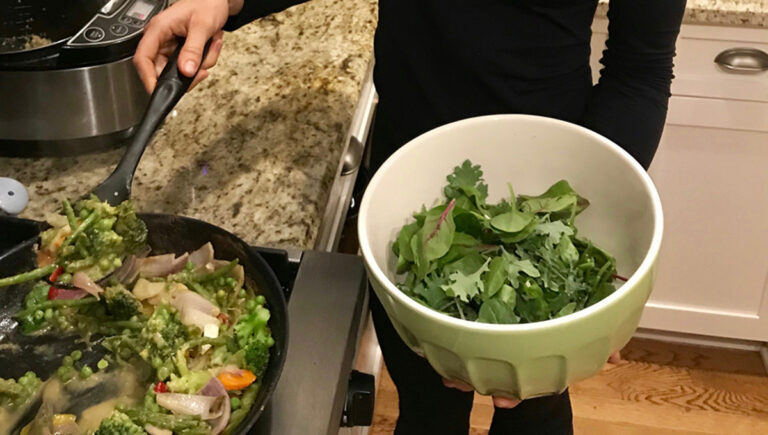Photos and Interview by Rebecca Parsons
If you are what you eat, then behind every good athlete is a nutritious and meticulously-planned diet. Because while training is crucial for a successful race performance, athletes won’t perform at their optimal level without putting the right food into their bodies.
“Healthy eating is one of the most important things that guides my life,” says prone paddling superstar and rising SUP star Carter Graves. “This is because what you put in your body is the fuel that it runs off of. I truly believe that you are what you eat.”
In part three of our SUP training series with Graves, she shares the diet she sticks to, foods she likes to avoid and what she eats before, during and after her workouts. –RP
Diet
I tend to stick to a whole food, paleo-style diet. I don’t like to put labels on diets as I believe every person thrives on an individual basis, but for me this low-carb diet works best. I eat an enormous amount of vegetables and a large amount of protein typically from sources like eggs and meat. I also strive to eat a lot of healthy fats which include nuts, avocados and coconut. Also try to add a variety of colors to any meal as each has distinctive healthy nutrients.
Foods to Avoid
Sugar is the big one! There is hidden sugar in everything — even in things you think are “healthy” like salad dressings and sauces. Always take the time to look at the nutrition facts on labels to avoid hidden sugar. Also try to avoid all oils except coconut, avocado and olive oil. Finally, avoid any type of simple carbohydrate like breads and grains.
When to Eat
I tend to eat three or four large meals throughout the day which are primarily composed of vegetables, healthy fats (avocado, coconut, nuts, seeds), and proteins (chicken, eggs, fish). After a strength training session or higher intensity workout, I’ll also include complex carbs such as quinoa or sweet potato. Try to avoid snacking too frequently, but incorporate healthy options such as vegetables, nuts and fruit.
Pre-Workout Nutrition
Many mornings I actually do not eat breakfast before training. I’m a big believer of fasted cardio in the morning, where I train at a low intensity on an empty stomach. This is not for everyone, but has helped me, especially in my endurance training. But after my fasted training session I make sure to eat a high protein meal.
Workout Fuel
If a workout is more than an hour and a half to two hours, I generally bring nutrition with me. I have moved away from processed supplements and have tried to train my body adapt to real foods such as fruits, seeds or nuts. Immediately after the workout, I either have a high-protein meal or a protein shake. It’s also important to try to eat within thirty minutes of finishing a workout, as this is important for muscle recovery.
Race Day Nutrition
The days surrounding a race is the time when I start to incorporate more carbs back into my diet. Especially the night after a race, I will load up on “good” carbs including sweet potatoes or quinoa, while also making sure I am getting a large quantity of protein–usually from a meat source. The morning before the race, my “go-to” meal is scrambled eggs and sprouted grains bread with almond butter on top. I also like a nice cup of black coffee.
